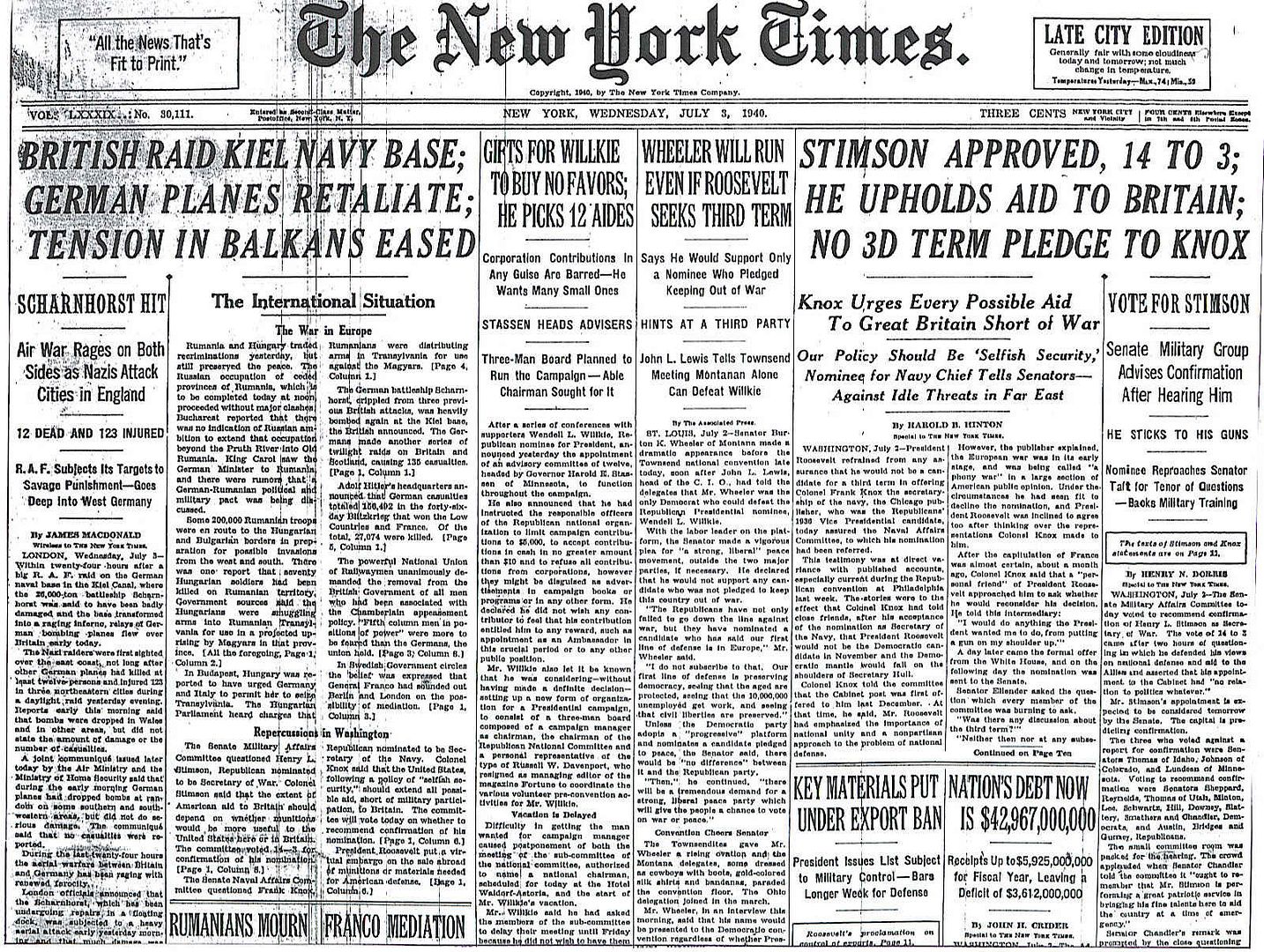
Posted on 07/03/2010 6:44:55 AM PDT by Homer_J_Simpson

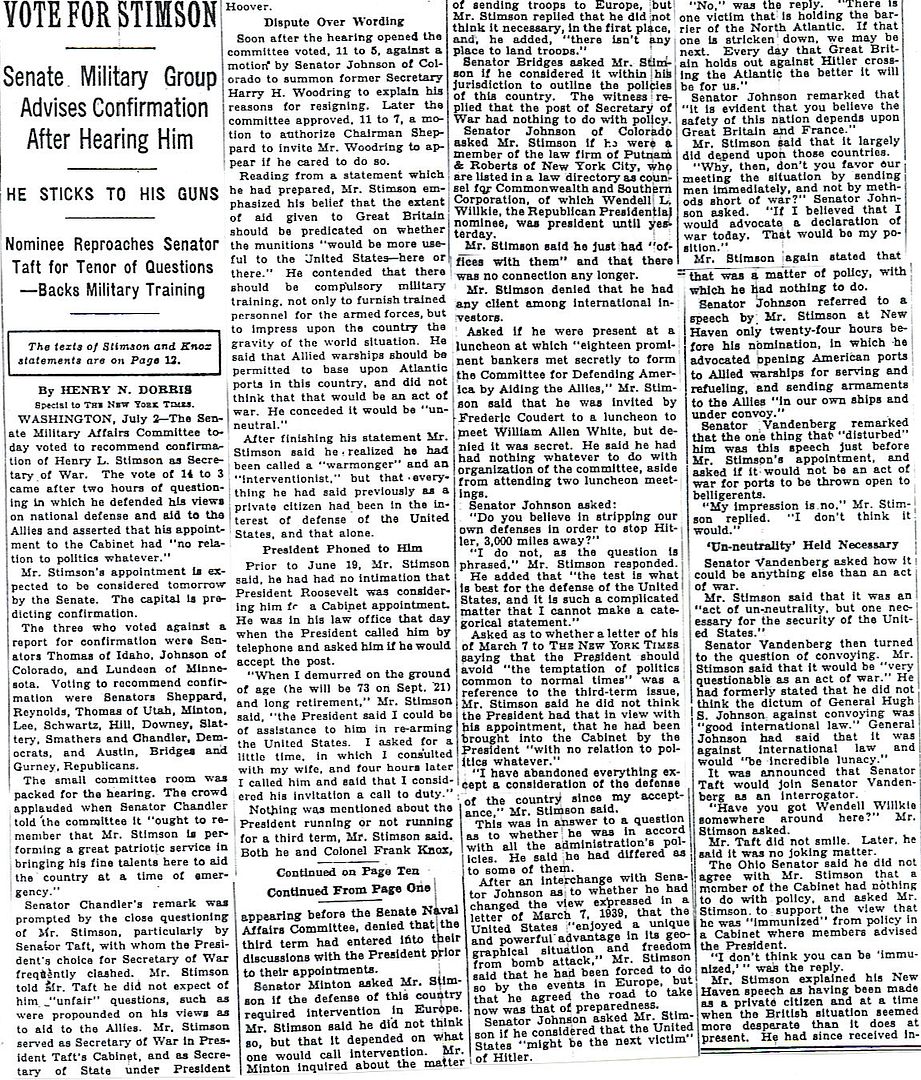
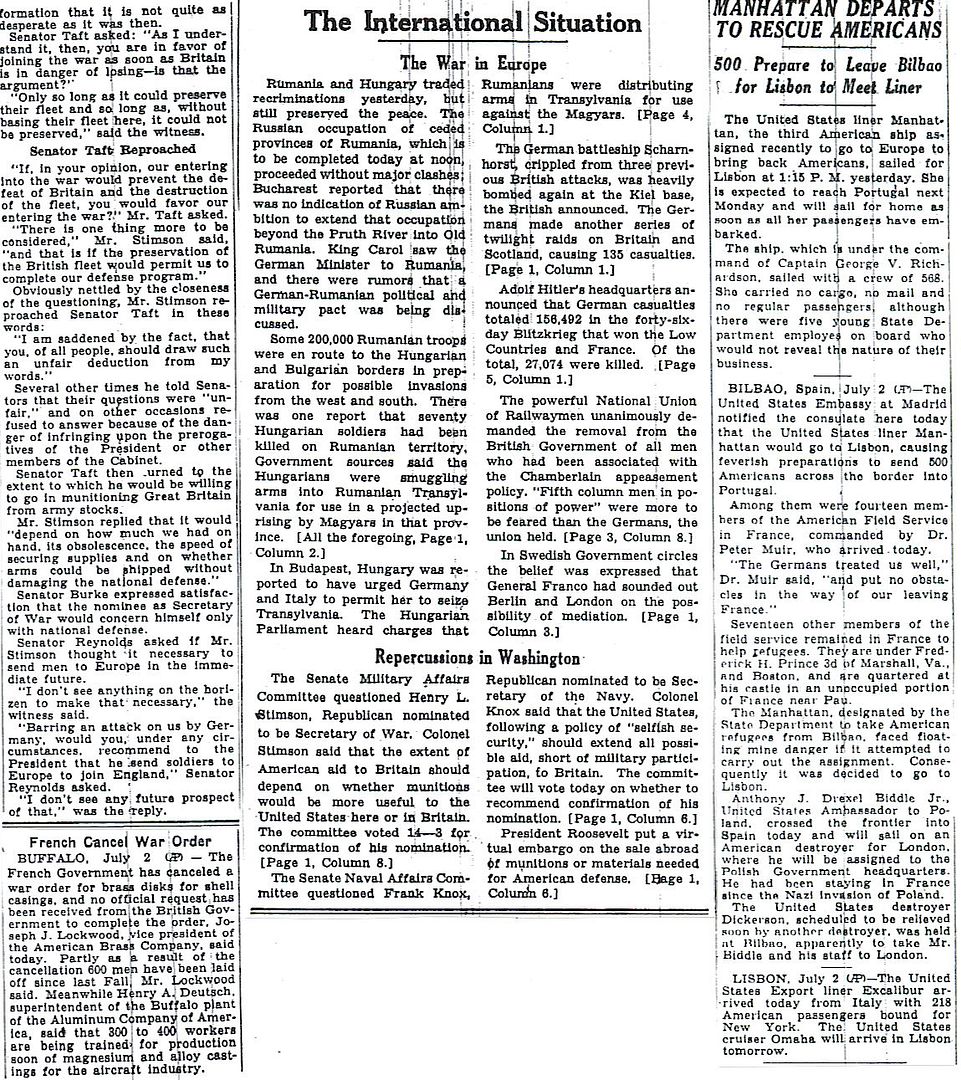
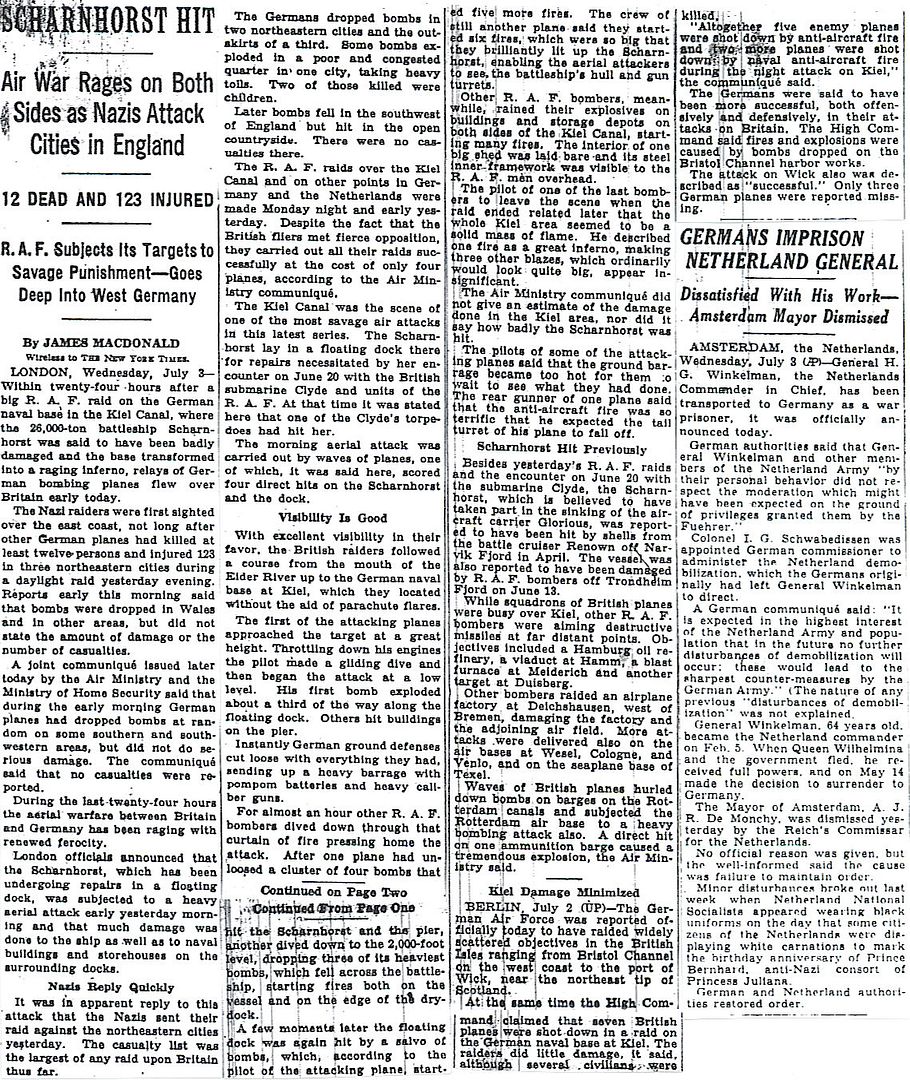
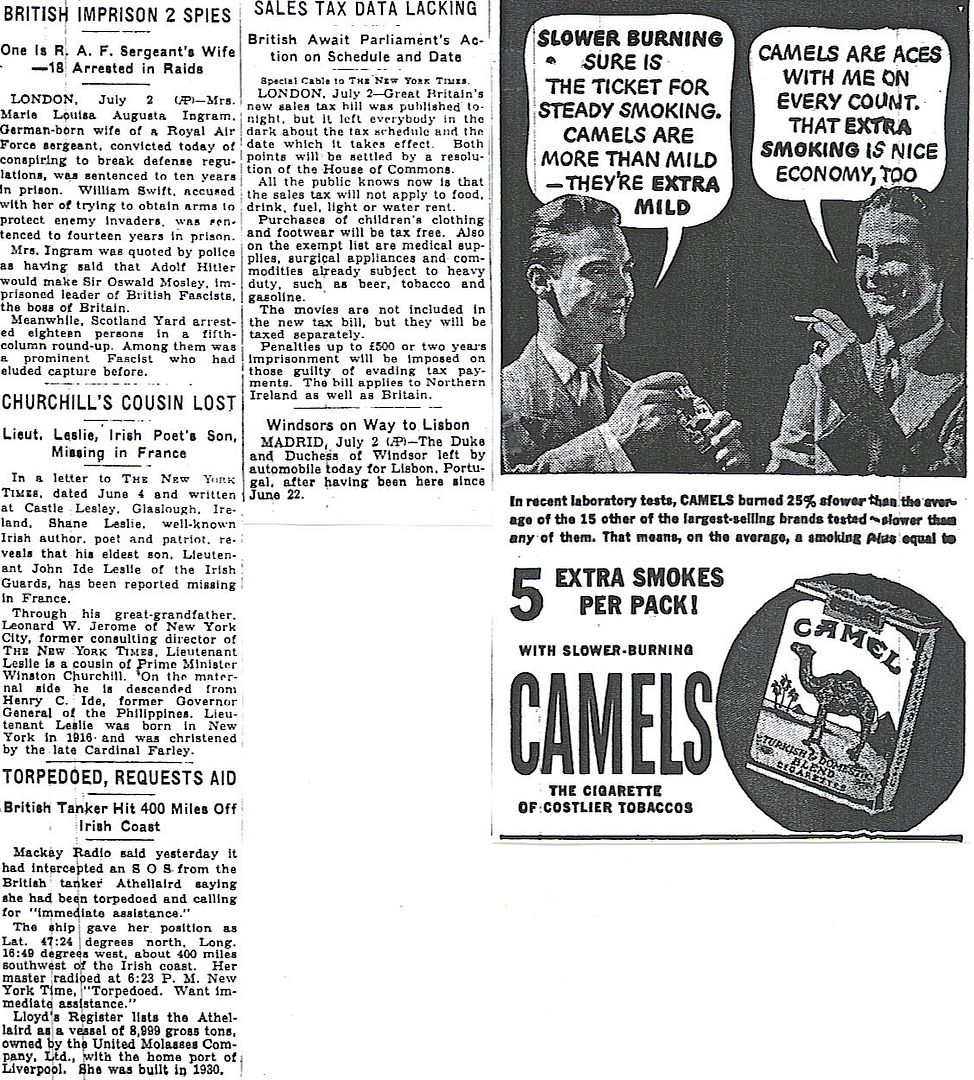
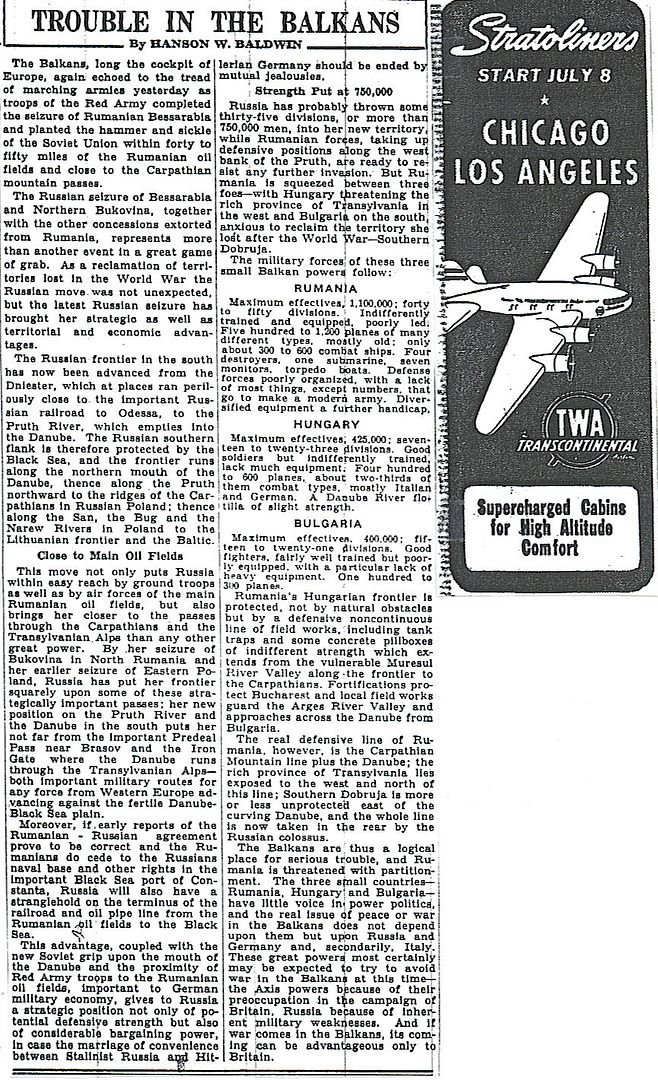
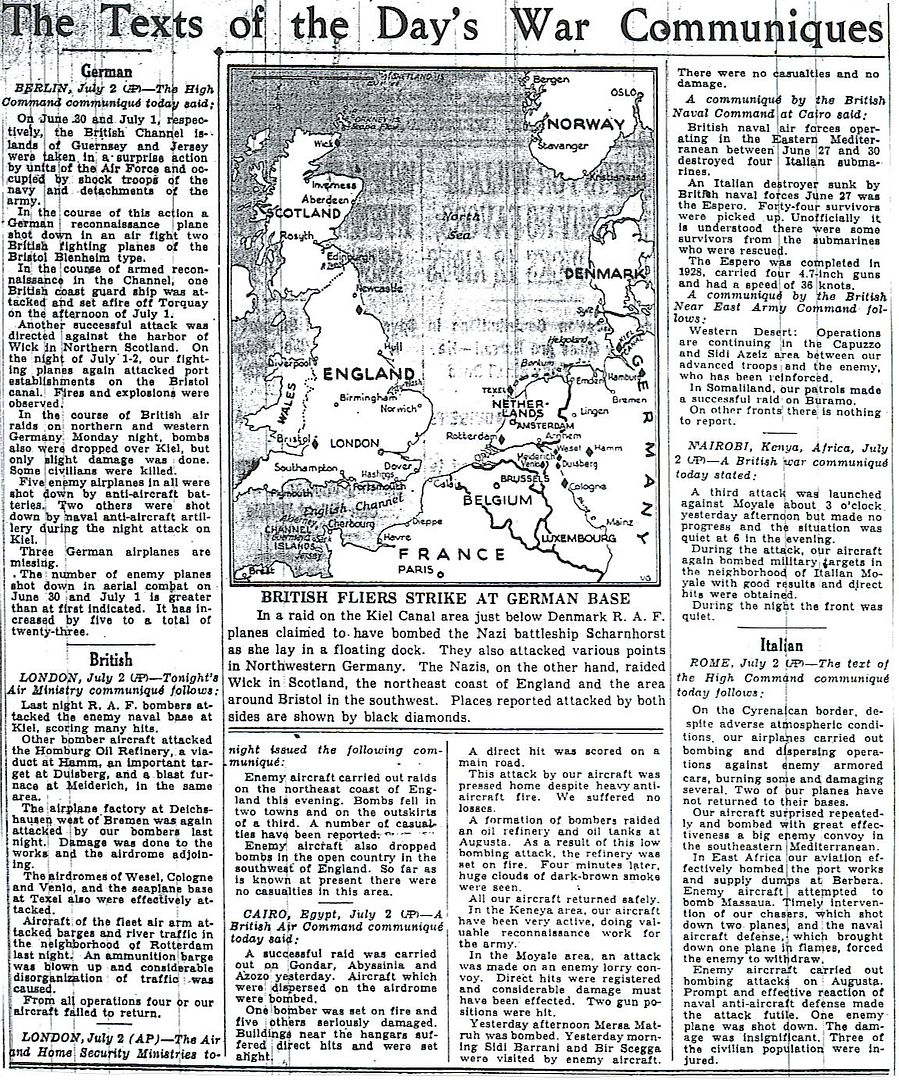
http://www.onwar.com/chrono/1940/jul40/f03jul40.htm
British attack French warships
Wednesday, July 3, 1940 www.onwar.com
Taken from the deck of the Dunkerque during the battle of Oran. The Bretagne is in the background in flames. The Provence and the Strasbourg are attempting to run from port.
In Algeria... At Mers-el-Kebir near Oran, British Admiral Somerville has been ordered to present various alternative schemes for the demobilization of the French ships and their removal to distant ports. Admiral Somerville has been sent with the two battleships and one battle cruiser of Force H supported by an aircraft carrier. The French Admiral Gensoul has four battleships and a large complement of supporting vessels. The deadline in Somerville’s orders expires before the negotiations have achieved an agreement and he feels compelled to open fire. The Bretagne is sunk and two more battleships are badly damaged. The Strasbourg and five destroyers steam out of the port and succeed in getting away to Toulon.
In Britain... At Plymouth and Portsmouth two French battleships, nine destroyers and many smaller ships are taken over with a little bloodshed in some minor skirmishes.
In Egypt... Negotiations are proceeding in Alexandria between the British and the French naval commanders there.
In London... There have been some suggestions, supported by Admiral Pound, the First Sea Lord, that the British Fleet should be withdrawn from the eastern Mediterranean. The idea is rejected by Churchill. The British government and Admiralty are also worried by the status of the French navy and fear that it will fall into German hands.
http://homepage.ntlworld.com/andrew.etherington/month/thismonth/03.htm
July 3rd, 1940
UNITED KINGDOM: Two old French battleships ‘Courbet’ and ‘Paris’ and several destroyers and submarines, including the giant ‘Surcouf’, are in British ports. They are boarded and seized, but not before there are casualties on both sides; three British personnel and a French seaman die in scuffles on board the submarine Surcouf; In total 59 French warships are seized.
Tugs Abeille II, Abeille IV, Abeille V, Abeille VI, Abeille XIV, Abeille XX, Abeille XXI, Abeille XXII, Cherbourgeois I, Cherbourgeois III, Cherbourgeois IV, Divette, Elan II, Excellent, Faisan, Jobourg, La Frene, La Pernelle, La Salicoque, Lama, Mammouth, Mastodonte, Mouflon, Nacqueville, Nessus, Peuplier, Pingouin, Pintade, Plougastel, Portzic, Ramier, Rene le Besnerais, Risban, Urville commissioned into RN service.
Minesweeping trawlers HMS Aiglon, Andre et Louise, Congre, Henriette, L’Atlantique, and Pine commissioned. (Dave Shirlaw)
The Admiralty considers withdrawal from the eastern Mediterranean. While Admiral Pound supports the idea, Churchill is adamantly opposed and quashes it. The concern involves the Italian Fleet and the fall of France. (Alex Gordon)
RAF Bomber Command: 4 Group (Whitley). Bombing - occupied airfields at Merville and Rotterdam.
51 Sqn. Four aircraft to Merville. Three bombed successfully, one returned early.
58 Sqn. Eight aircraft to Rotterdam. Only two bombed, weather very bad.
2 Group: 15 Sqn. Aerial reconnaissance of Scharnhorst and bombing of Evere.
82 Sqn. Cloud-cover raids on French airfields.
107 Sqn. Nine aircraft bomb railways at Hamm, Hamborn, Wismar, Osnabruck and Leunan. Four sections also went after barges on the River Lek and bombed Schipol.
RAF Fighter Command: No 1. Squadron is declared operational again after its return from France.
NETHERLANDS: Henri Winkelman, the former Dutch Commander-in-Chief is arrested and taken to Germany.
ALGERIA: Operation Catapult - Admiral Somerville arrives with Force H off the French Algerian base of Mers-el-Kebir near Oran. The French Admiral Gensoul is offered a number of choices to ensure his fleet with its four capital ships stays out of Axis hands.
These are to join the British outright; be interned in British ports; sail to French ports in the West Indies; or scuttle their own ships.
All are turned down and, at around 18.00, Force H opens fire on the anchored ships. Battleship FS Bretagne blows up (total killed 36 officers, 151 Petty Officers and 825 Seamen) and the ‘Dunkerque’ and ‘Provence’, together with other ships are badly damaged killing 130 French sailors. The French ships and shore batteries return fire, but fail to hit any British ships. Battlecruiser ‘Strasbourg’ and some destroyers manage to break out in spite of attacks by aircraft from HMS Ark Royal. They reach Toulon.
CANADA: Corvette HMCS Chilliwack laid down North Vancouver British Columbia.
Corvette HMS Mayflower (later HMCS Mayflower) launched Montreal Province of Quebec. (Dave Shirlaw)
U.S.A.: Submarine USS Tautog commissioned. (Dave Shirlaw)
ATLANTIC OCEAN: U-26 (Type IA) is sunk at position 48.03N, 1130W, by 8 depth charges from an Australian Sunderland aircraft (Sqn 10/H). HMS Rochester picked up the 48 survivors (entire crew) from the attack. (Dave Shirlaw)
Was this in retaliation for the Germans bombing Pear Harbor? /s
I just noticed the library is named after Tom McHenry’s family. Why?
Did he go there?
The Windsor’s are heading to Lisbon? Interesting.
I am not familiar with that bit of local history. I would guess it has something to do with a bequest at the time of the founding of the college back in the sixties.
There is a section in chapter 22 of Rise and Fall of the Third Reich called "Postscript: The Nazi Plot to Kidnap the Duke and Duchess of Windsor." The episode reaches a climax during this trip to Lisbon. I opted not to excerpt it here because it never came to anything. It begins, "More amusing than important . . ."
I thought for a moment from the title this might be more World Cup fallout.
That’s what I was thinking of. It is an interesting story of intrigue. It would eventually lead to the Duke becoming the governor of the Bahamas. I guess if the government is going to get you out of the way, there are worse places to be sent.
"...Mr. Stimson emphasized his belief that the extent of aid given to Great Britain should be predicated on whether the munitions 'would be more useful to the United States -- here or there.'
"He contended that there should be compulsory military training, not only to furnish trained personnel for the armed forces, but to impress upon the country the gravity of the world situation.
"He said that Allied warships should be permitted to base upon Atlantic ports in this country, and did not think that that would be an act of war.
"He conceded it would be 'un-neutral'...."After finishing his statement Mr. Stimson said he realized he had been called a 'warmonger' and an 'interventionist,' but that everything he had said previously as a private citizen had been in the interest of defense of the United States, and that alone...
"...Senator Minton asked Mr. Stimson if the defense of this country required intervention in Europe.
"Mr. Stimson said he did not think so, but that it depended on what one would call intervention."
Or, as one of our current generation politicians famously said,
"It all depends on what the definition of "is" is."
I find it most curious the read of these American politicians trying to define for themselves just what might, or might not, be an "act of war."
Surely that's a subject on which an authority like, oh, say, Herr Hitler might have an opinion?
http://worldwar2daybyday.blogspot.com/
Day 307 July 3, 1940
Operation Catapult. At dawn, Royal Navy boards 2 French battleships, 9 destroyers and other smaller ships at Plymouth and Portsmouth, England (3 British & 1 French sailor are killed).
At 5.45 AM, British Force H arrives off Mers-el-Kébir, Algeria. Vice Admiral Somerville offers French Admiral Marcel Gensoul (a known Anglophobe, loyal to the Vichy government) four alternatives for his fleet; join the Royal Navy; be interned in British ports, be decommissioned in the West Indies or USA, or sink the warships in Mers-el-Kebir harbour. Gensoul rejects the British terms, leading to fruitless negotiations all afternoon. At 5.56 PM, British ships shell the harbour for 10 minutes. The magazine on French battleship Bretagne is hit, which explodes and sinks at 6.09 PM (977 lives lost). Battleships Provence and Dunkerque and destroyer Mogador are damaged. In all, 1,297 French sailors are killed and 350 wounded. http://www.hmshood.org.uk/reference/official/adm234/adm234-317.htm
French battleship Strasbourg, aircraft carrier Commandant Teste and four destroyers escape from Mers-el-Kébir following the attack and evade the British blockade. 6 French cruisers and 4 destroyers leave Algiers on the news. They rendezvous and escape to Toulon, France, arriving on 4 July, despite bombing attacks by Fairey Swordfish from British aircraft carrier HMS Ark Royal.
Similar terms are given by Vice Admiral Sir Andrew Cunnigham to French Admiral Godefroy at Alexandria, Egypt. Negotiations continue all day and the French ships (battleship Lorraine and 4 cruisers) are not attacked. Negotiations will continue until July 7.
Luftwaffe bombs Cardiff in South Wales.
Disclaimer: Opinions posted on Free Republic are those of the individual posters and do not necessarily represent the opinion of Free Republic or its management. All materials posted herein are protected by copyright law and the exemption for fair use of copyrighted works.